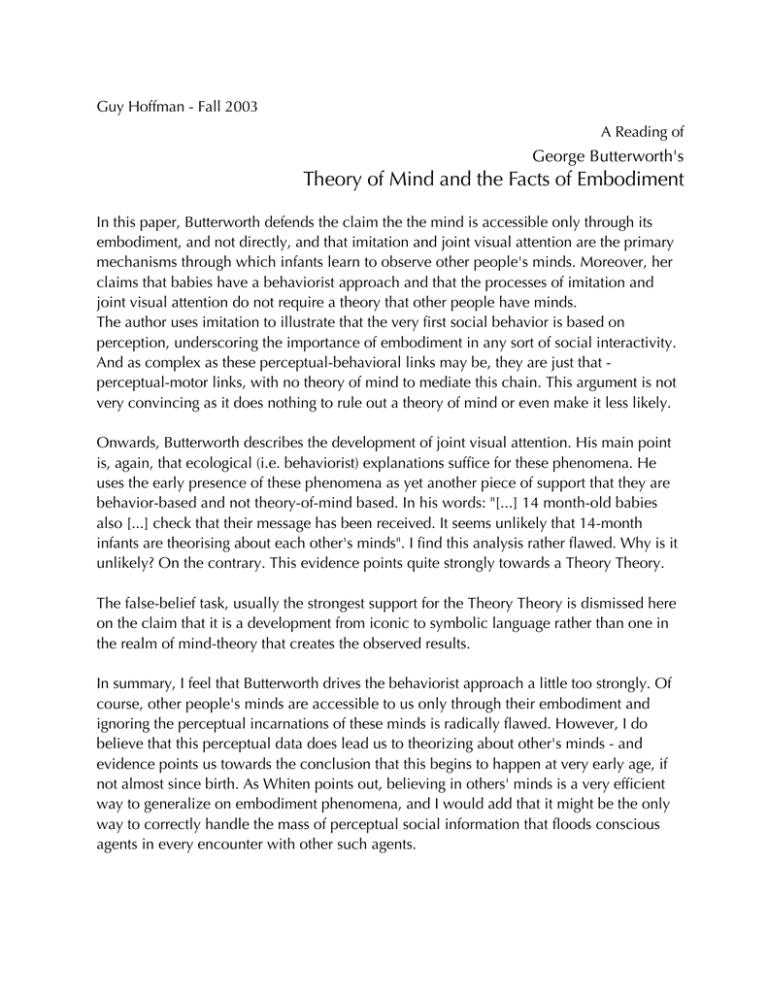Theory of Mind and the Facts of Embodiment George Butterworth's
advertisement

Guy Hoffman - Fall 2003 A Reading of George Butterworth's Theory of Mind and the Facts of Embodiment In this paper, Butterworth defends the claim the the mind is accessible only through its embodiment, and not directly, and that imitation and joint visual attention are the primary mechanisms through which infants learn to observe other people's minds. Moreover, her claims that babies have a behaviorist approach and that the processes of imitation and joint visual attention do not require a theory that other people have minds. The author uses imitation to illustrate that the very first social behavior is based on perception, underscoring the importance of embodiment in any sort of social interactivity. And as complex as these perceptual-behavioral links may be, they are just that perceptual-motor links, with no theory of mind to mediate this chain. This argument is not very convincing as it does nothing to rule out a theory of mind or even make it less likely. Onwards, Butterworth describes the development of joint visual attention. His main point is, again, that ecological (i.e. behaviorist) explanations suffice for these phenomena. He uses the early presence of these phenomena as yet another piece of support that they are behavior-based and not theory-of-mind based. In his words: "[...] 14 month-old babies also [...] check that their message has been received. It seems unlikely that 14-month infants are theorising about each other's minds". I find this analysis rather flawed. Why is it unlikely? On the contrary. This evidence points quite strongly towards a Theory Theory. The false-belief task, usually the strongest support for the Theory Theory is dismissed here on the claim that it is a development from iconic to symbolic language rather than one in the realm of mind-theory that creates the observed results. In summary, I feel that Butterworth drives the behaviorist approach a little too strongly. Of course, other people's minds are accessible to us only through their embodiment and ignoring the perceptual incarnations of these minds is radically flawed. However, I do believe that this perceptual data does lead us to theorizing about other's minds - and evidence points us towards the conclusion that this begins to happen at very early age, if not almost since birth. As Whiten points out, believing in others' minds is a very efficient way to generalize on embodiment phenomena, and I would add that it might be the only way to correctly handle the mass of perceptual social information that floods conscious agents in every encounter with other such agents.






